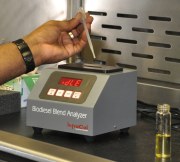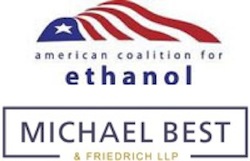 Midwest-based MidAmerican Energy Co. is investing $1.9 billion in wind energy by adding up to 1,050 megawatts of wind generation, consisting of up to 656 new wind turbines, in Iowa by the end of 2015. This article from the Iowa City Press Citizen says the utility’s investment will create lots of green jobs in the state, without tapping any state tax dollars to do it:
Midwest-based MidAmerican Energy Co. is investing $1.9 billion in wind energy by adding up to 1,050 megawatts of wind generation, consisting of up to 656 new wind turbines, in Iowa by the end of 2015. This article from the Iowa City Press Citizen says the utility’s investment will create lots of green jobs in the state, without tapping any state tax dollars to do it:
MidAmerican Energy, a utility serving 714,000 customers in Iowa, Illinois, Nebraska and South Dakota, said the project would create 460 construction jobs over two years and 48 permanent jobs, primarily workers needed to maintain the 656 wind turbines the utility will build through 2015.
The permanent jobs will create $2.4 million annually in pay for workers, MidAmerican said. The construction workers will take home $30 million, said Lt. Gov. Kim Reynolds. “That’s over 500 Iowa residents who will bring home a paycheck to provide for their families,” she said.
The project will add 1,050 megawatts of wind generation, pushing the utility’s total to 3,335 megawatts of energy. As a result, MidAmerican expects that about 40 percent of its power to Iowa customers will come from wind.
“That is marvelous news,” said Harold Prior, executive director of the Iowa Wind Energy Association. “MidAmerican is one of the top utilities in the country as far as embracing wind energy.”
In addition, the project is expected to lower consumer’s utility bills. Officials in the Hawkeye State also believe this sends a message to the rest of the country that Iowa is innovative, especially when it comes to wind energy. The state is on track to generate 10,000 megawatts of wind power by 2020.
While MidAmerican is not getting state aid for this project, it will receive federal wind production tax credits.











